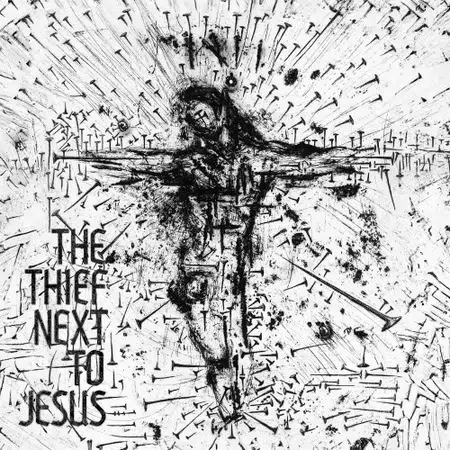On The Thief Next to Jesus, Ka, the enigmatic Brooklyn rapper who passed away this week at the age of 52, delivers one of his most spiritually charged and conceptually dense projects yet.
Known for his minimalist beats and poetic lyricism, Ka’s 11th album grapples with the fraught relationship between Black Americans and Christianity. Drawing from biblical allegories and his own upbringing in Brownsville, Brooklyn, Ka explores the contradictions of a faith that promises salvation while historically serving as a tool of oppression. The album’s central metaphor—a nod to the thieves crucified alongside Jesus—serves as a powerful lens through which Ka examines redemption, suffering, and the precarious nature of faith. As always, his music unfolds slowly, requiring patience and close listening, but the reward is profound, with each line carefully crafted to deliver deep introspection.
Like much of his catalog, Ka’s production on this album is stark and minimal yet richly textured. His self-produced beats rely heavily on haunting piano loops, gospel-inspired organ samples, and eerie call-and-response elements that lend the project a sacred, almost meditative quality. On tracks like “Collection Plate” and “Beautiful,” Ka creates a soundscape that feels both solemn and triumphant, mirroring the tension between hope and despair that runs through the album. His subdued vocal delivery, a hallmark of his style, carries an almost pastoral calm, which only heightens the gravity of his words. It’s this patient, deliberate cadence that has long set Ka apart in the world of underground rap, where his presence has been nothing short of monumental over the last decade.
Lyrically, The Thief Next to Jesus is as philosophical as it is personal. Ka’s ability to condense complex ideas into tight, introspective bars remains unmatched. On “Broken Rose Window,” he reflects on his hardships growing up in Brooklyn’s streets. His words feel like they carry centuries of pain and survival, and yet, they’re also laced with wisdom, much like the concise teachings of a monk or a sage. In typical Ka fashion, he weaves these autobiographical elements into broader meditations on faith and redemption. On “Fragile Faith,” he questions the very foundations of religion and salvation, acknowledging the spiritual disillusionment faced by generations of Black people: “A couple hundred years asking, nothing kept us safe… still do us the same, we in the same place.”
Ka’s passing is a devastating loss for hip-hop. He was a master of quiet defiance, whose music resonated deeply with those willing to sit with his words and absorb their meaning. Though his sound was often stripped down, the emotional and intellectual weight of his art was immense. With The Thief Next to Jesus, Ka leaves us with a haunting reflection on life, faith, and survival. It is an album that challenges its listeners to reckon with uncomfortable truths, just as Ka did throughout his career. His legacy as one of the most uncompromising voices in rap is secure, and his influence on the underground scene will continue to be felt for years to come. Rest in peace, Ka—Brownsville’s finest and a true rap visionary.
Listen/buy: Artist Website | Apple Music | Spotify
